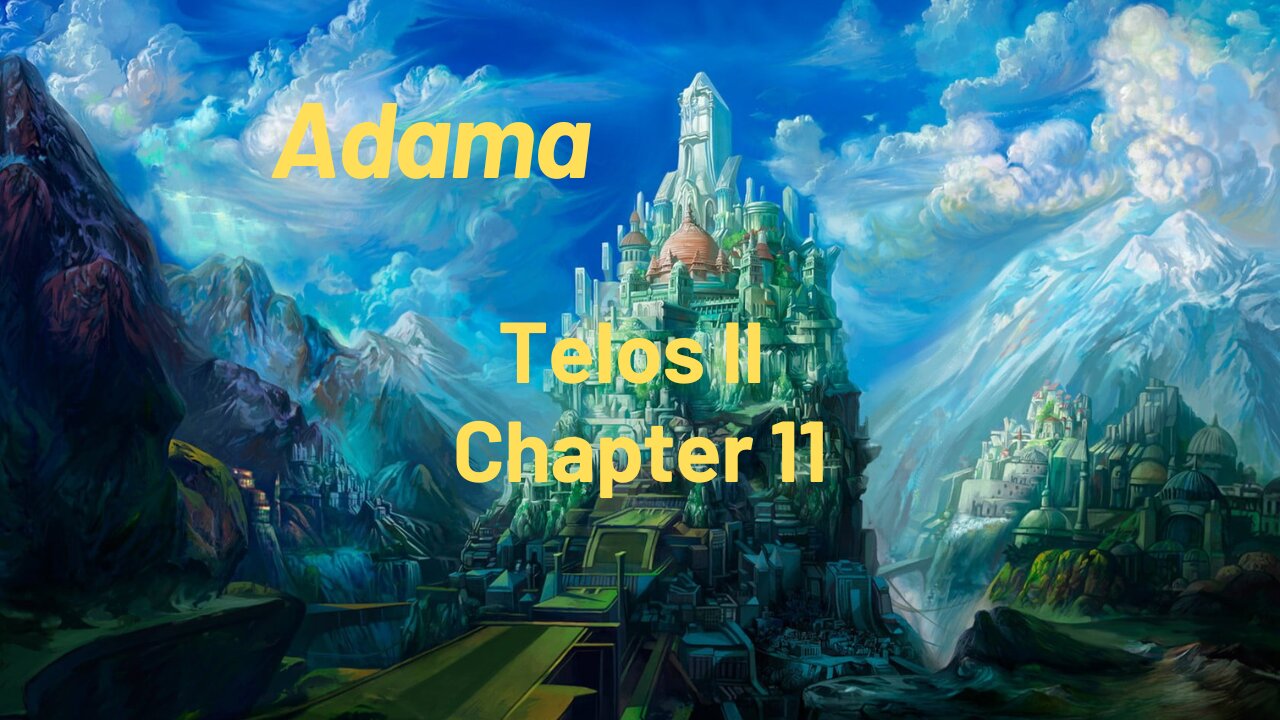Premium Only Content

Adama - Telos II - Chapter 11
In Chapter 11 of "Telos II," Adama, a spiritual figure, addresses the readers as dear brothers and sisters. This chapter focuses on the story of Galatril, a representative of the Atlantean city of Posid, and explores the parallels between the past experiences of Lemuria and Atlantis and the challenges humanity faces today.
Adama starts by revisiting the history of Lemuria's and Atlantis's downfall, attributing their destruction to an imbalance within their civilizations. He emphasizes that the pursuit of external desires and power led to their demise. Adama likens the lessons learned from these ancient civilizations to the journey of modern humans. He highlights the significance of recognizing the consequences of one's actions and how individuals have the power to shape their destinies.
Adama reveals that survivors like the inhabitants of Telos were not necessarily privileged but rather those who managed to see the impending disaster and took steps to prevent it. He underscores the responsibility each person bears for their actions and choices. Through the example of Galatril, Adama illustrates the importance of learning from past mistakes and the shared experiences of both Lemuria and Atlantis.
Drawing a parallel between the past and present, Adama speaks of humanity's current challenges—separation from Source, the pursuit of power, inequality, and a lack of love. He compares these challenges to those faced by Lemuria and Atlantis. Adama notes that, like the ancient civilizations, humanity is at a crucial juncture where it must decide whether to evolve or remain stagnant.
The topic shifts to ascension, with Adama explaining that not everyone will ascend. Those deeply entrenched in materialistic pursuits and ego-driven behaviors will be left behind. He clarifies that the term "sink" used here is metaphorical and represents a failure to transcend the limitations of the Third Dimension. Adama contrasts these individuals with those who are actively seeking higher consciousness and a return to their spiritual essence.
Adama underscores the significance of forgiveness and unity, encouraging individuals to let go of judgment. He emphasizes the importance of embracing love, forgiveness, and elevation as fundamental principles for spiritual growth. Adama explains that while ascending is a personal journey, there's always time for transformation. He maintains that the process is not about privilege but about self-discovery and genuine change.
Concluding the chapter, Adama invites readers to open their hearts to the teachings of Telos and Posid, two subterranean cities that offer guidance on spiritual evolution. He advises individuals to learn from the past, seek unity, and strive for forgiveness and elevation as they navigate their paths toward ascension.
In essence, Chapter 11 of "Telos II" discusses the lessons of Lemuria and Atlantis, urging readers to reflect on their own lives, choices, and opportunities for growth. Adama emphasizes the importance of embracing unity, forgiveness, and love as humanity stands at the crossroads of its evolution, with the potential to ascend to higher dimensions.
-
 LIVE
LIVE
IamTyrantt
1 hour agoGaming on Rumble!!
376 watching -
 1:51:47
1:51:47
Steve-O's Wild Ride! Podcast
2 days ago $4.26 earnedBryan Johnson Helps Steve-O Rebuild His Body After Decades Of Abuse
24.7K6 -
 LIVE
LIVE
Jewels Jones Live ®
2 days agoTRUMP’S AGENDA ADVANCES | A Political Rendezvous - Ep. 116
2,167 watching -
 LIVE
LIVE
EXPBLESS
3 hours agoServers Finally Back Up!! FORTNITE LIVE WITH THE HOMIES
155 watching -
 LIVE
LIVE
MrFox1212
1 hour agoApex Ranked Solo Queue Experience
146 watching -
 LIVE
LIVE
MuRG
3 hours agoKOMPETE
64 watching -
 LIVE
LIVE
JdaDelete
3 hours ago $0.11 earnedShenmue - Sega Saturday
121 watching -
 LIVE
LIVE
Dark Side of the Acorn
3 hours agoLets do some Farmin :)
34 watching -
 2:56:17
2:56:17
Streamstorian
3 hours agoRPG Saturday | Chrono Trigger!
12.7K -
 2:55:42
2:55:42
ttvglamourx
3 hours ago $0.88 earnedSURPRISE SATURDAY STREAM !DISCORD
9.12K2